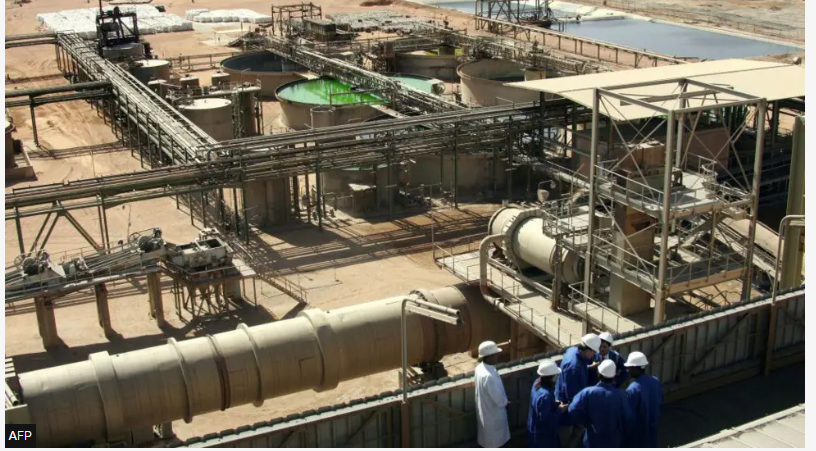 In a significant move that has raised tensions between the new military leadership in Niger and France, the junta has taken control of a major French-owned uranium mine. The mine, operated by the French company Orano, is one of the largest in the world and has been a key source of uranium for France’s nuclear energy program for decades. The seizure comes amid rising anti-French sentiment in the region and escalating political instability since the coup in July 2023.
In a significant move that has raised tensions between the new military leadership in Niger and France, the junta has taken control of a major French-owned uranium mine. The mine, operated by the French company Orano, is one of the largest in the world and has been a key source of uranium for France’s nuclear energy program for decades. The seizure comes amid rising anti-French sentiment in the region and escalating political instability since the coup in July 2023.
The military junta, which ousted the democratically elected president Mohamed Bazoum, has been challenging France’s historical influence in West Africa. The takeover of the uranium mine, located in the northern region of Niger, is viewed as a bold move to assert the country’s sovereignty and reduce its dependence on foreign powers. Orano, previously known as Areva, had been operating the mine under a long-term agreement with the Nigerien government. However, in the wake of the coup, the junta has made it clear that it intends to renegotiate or dissolve contracts with foreign entities that it deems exploitative.
The uranium mined at the site is crucial for France’s nuclear reactors, which supply a large portion of the country’s energy needs. While the junta has stated that it will continue to honor existing contracts, it has also warned of potential disruptions in the supply chain, which could affect France’s nuclear energy production. This move is seen as part of a broader effort by the junta to remove French influence from the region, particularly in the wake of protests against French troops stationed in Niger and neighboring countries.
In response, the French government has condemned the seizure, calling it a violation of property rights and an escalation in the ongoing diplomatic standoff. France has long maintained a military presence in the Sahel region as part of its counterterrorism efforts, but the presence of French troops has become increasingly unpopular, with many in the region viewing it as a form of neo-imperialism.
The situation in Niger is part of a larger trend in West Africa, where military coups have become more frequent in countries like Mali, Burkina Faso, and Guinea. These countries have also sought to reduce French influence and strengthen ties with Russia, as evidenced by the growing presence of the Wagner Group, a Russian paramilitary organization, in the region. As Niger moves further away from France, the international community is watching closely to see how these geopolitical shifts will affect regional stability, economic ties, and the global uranium market.
For Niger, the seizure of the mine is not just a political statement but also a strategic economic decision. Uranium is one of the country’s most valuable natural resources, and the junta is likely hoping to leverage control of this resource to strengthen its position both domestically and internationally. However, the move carries risks, as it could lead to further economic isolation and possible sanctions from Western nations, particularly France, which has historically been a key partner in Niger’s development.
As the situation unfolds, the future of the French-owned uranium mine remains uncertain. While the junta has promised to protect workers and ensure the continued operation of the mine, the geopolitical ramifications of its actions are likely to reverberate across the region and beyond. The standoff between the military regime in Niger and France is now one of the key flashpoints in the ongoing struggle for influence in West Africa.

